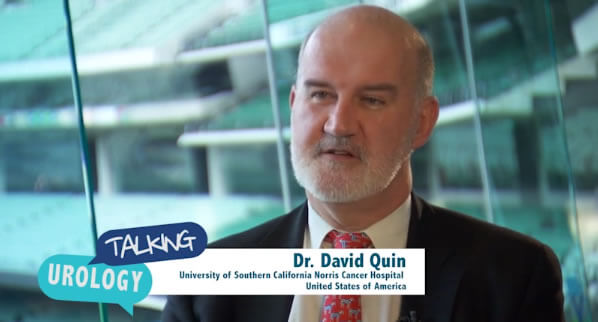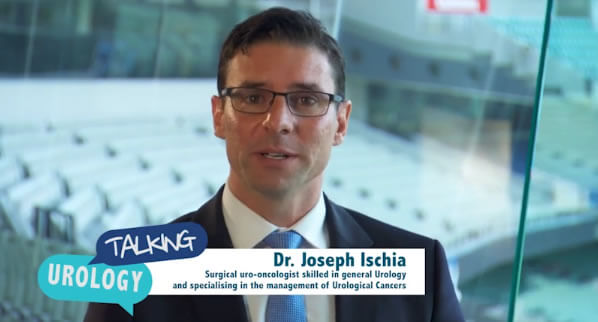ANZUP 2017 – Dr Alex Kutikov (2)
Dr Alex Kutikov discusses predictors of pT0 bladder cancer after neoadjuvant chemotherapy; can we avoid cystectomy in these patients?Talking Urology podcast transcript
ANZUP 2017 Interviews - Shomik Sengupta and Alexander Kutikov
Dr Shomik Sengupta: Well, Alex, it was an interesting study that you presented yesterday which was looking at the response to therapy prior to cystectomy and the pT0 and how that might impact outcomes. Just walk us through what your thoughts are in this area.
Dr Alexander Kutikov: Sure. After TUR, about 10 to 15% percent of patients are actually rendered disease free and after neoadjuvant chemo that rate goes up to about 30%, so that’s 30% of patients where we put up through cystectomy. We’d take out their bladders and we find no cancer in the specimen. Over the years, there has been some effort to try to identify those patients and all those efforts have largely failed. There is experience, however that patients who refuse cystectomy who don’t really have any findings of cancer on endoscopic examination after neoadjuvant chemotherapy actually do quite well. There is experience from Columbia from Jim McKiernan that about 70% of patients who refuse to cystectomy actually kept their bladders long term with over I believe 50 months of follow-up. There is a really a huge opportunity here to accurately predict who those patients are. Amazingly in 2017, we really don’t know what a negative predictive value of a normal cystoscopy. Saying it in another way is we don’t know what percentage of the time there is submucosal disease that we can appreciate on cystoscopy.
Shomik: How do we go about assessing this? I gather that you are running a study at the moment to look at it.
Alex: Right. The only really way that to truly answer that question is to examine the bladder right before cystectomy. And then, in a very granular fashion document what you’re seeing visually, either do TUR or do targeted biopsies and then remove the bladder. At Fox Chase Cancer Center, we’ve actually started enrolling patients into a study such as this where we are, right before cystectomy, looking in the bladder, documenting what we’re seeing in the bladder, doing some targeted biopsies and then going forward with cystectomy. We’re also sort of piggybacking some correlative studies on biomarker and gene expression and really sort of an immune response to this trial, so it’s a very exciting time.
Shomik: You then go ahead and complete the cystectomy. At the moment, that’s not really changing what you do, but I guess depending on the results, you might, down the track, look at leaving the lettering and seeing what the outcomes are.
Alex: Right. We’re hoping that we can identify a subset of patients that with a high degree of accuracy we can say that they really don’t have submucosal disease. This bladder actually would be pathologic to zero if we took it out and then this would be an opportunity to save those bladders.
Shomik: Well, it sounds like it will lead to some interesting results and a little bit more guidance. I mean, patients often want to know that if the tumor has shrunk and gone away, do I still need to have the bladder out.
Alex: That’s right. A question I had a couple of times.
Shomik: Indeed. I think it’ll be great to have some sort of an answer to give them and excitingly maybe some change of practice down the track if we can avoid doing major surgery on them.
Alex: Yes. We’ve started just over 6 months ago. We almost have 40 patients enrolled, so we’re looking forward to some answers.
Shomik: Good luck with the rest of the accrual and we look forward to getting the results down the track.
Alex: Great.
Shomik: Thank you.
Alex: Thank you.












